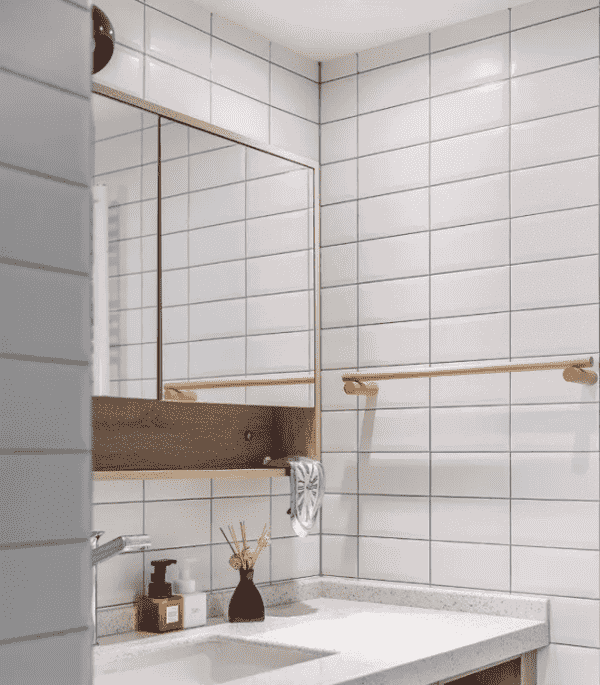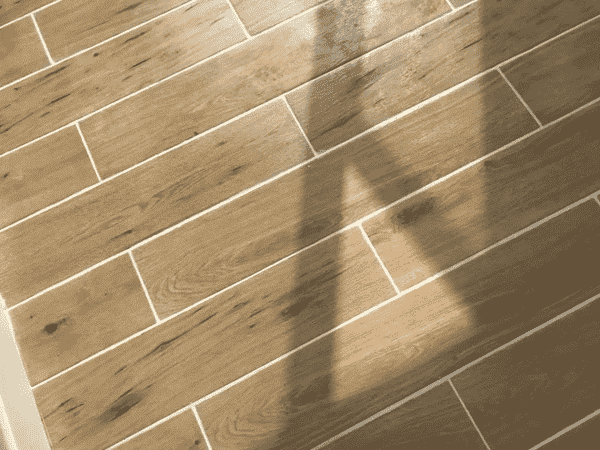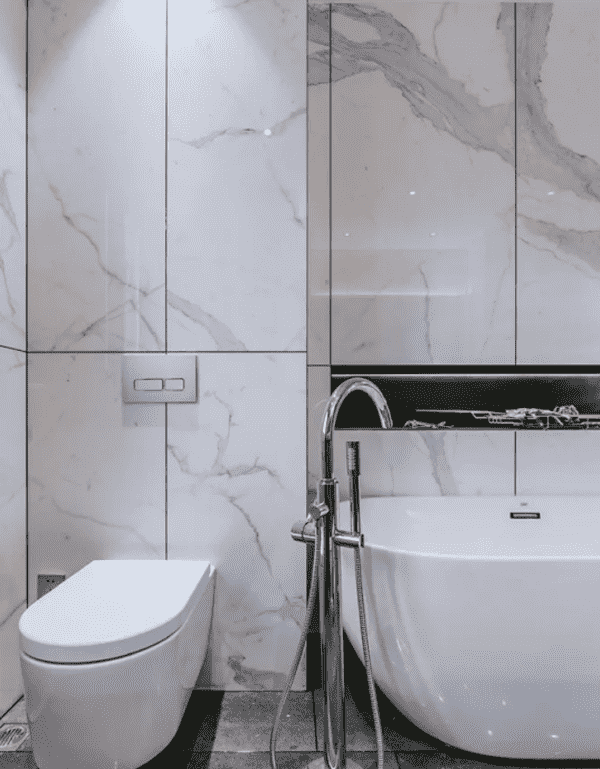When decorating, everyone will make great efforts to choose wall and floor tiles, but it is easy to ignore the most important caulking:
Do tiles or mosaics have to be caulked?
How to caulk? Would it not look good?
The finished caulk is blackened. Can it be saved?
…….
Although the gap is narrow to only a few millimeters, if it is not done well, these millimeters may become a fly that “destroys a pot of soup”, damaging the appearance of the whole ground and the quality of tiles or mosaics.

What is Caulk?
We don’t talk about the big truth. You can simply understand the caulk as beautifying the tile gap. It may be more intuitive to see the following picture.

As we all know, when paving tiles or mosaics, not every tile or mosaic will be close to each other. Generally, a gap of 1.5mm will be reserved to prevent swelling and cracking caused by thermal expansion and cold contraction of tiles in the future.
Filling these gaps is what we call caulk.
Q: Do you have to make caulk when paving tiles or mosaics?
A: Not necessarily, but it is recommended to do it, because the bottom material of the gap between bricks is cement, which absorbs water wildly as soon as it is damp, resulting in mildew. The function of caulk seems to make the gap of ceramic tile neat and good-looking. It is to prevent mildew and bacteria, enhance waterproofing and facilitate cleaning.

What caulks can be chosen?
A good horse with a good saddle, what is the best choice with caulks?
White cement
In the past, we used white cement mixed with water to fill the joints directly. It has a good effect in a short time, but it is easy to seep, mold and fall off, which has been eliminated.

Caulk
The upgraded version of white cement has strong adhesion and crack resistance, but it is not waterproof. In areas such as the kitchen and toilet, the pointing agent is easy to turn yellow and moldy.

Grouting fix agent
Waterproof, mold-proof, and dirt-resistant. The main raw material is epoxy resin, which is a semi-fluid liquid installed in the pipe, which can fit perfectly in the gap. The only disadvantage is poor hardness and eases to collapse after curing.

- Grouting fix agent color card
Porcelain sealant (real porcelain glue)
Porcelain joint agents will not volatilize water and will not collapse; It is very hard after solidification and will not fall off. In addition, the waterproof and mildew resistance is very good, and there is almost no water seepage.

summary
The order of performance is white cement < caulk < Grouting fix agent < Porcelain sealant.
Dry area: caulk
Wet area: Grouting fix agent, Porcelain sealant

How to match and makes it beautiful?
The choice of caulk is also important. If it is matched well, the overall appearance will be added points and pleasing to the eye; If the collocation is not good, the tiles bought at a high price will also look inferior.
Choose a color that contrasts strongly with the tile
Black brick and white seam, white brick, and black seam are the most common comparison techniques
① dark brick + light color joint
Light-colored caulking agent is most likely to highlight the texture of dark ceramic tiles, which is simple and clear.

② Small white brick / small white bread brick + dark gray seam
All kinds of small white bricks can be matched with a dark gray grouting fix agent, with distinct contrast and a strong sense of lines.

It is suggested not to use pure black, which is too rigid. It is the same as buying girls’ eyebrow pens instead of pure black.
Choose a color similar to the tile
① Light brick + light seam
Light-colored bricks with light-colored gaps look clean and the overall sense of space will be stronger

② Anti-wood grain brick + same color joint
If it is imitation wood grain brick, to imitate seamless wood floor to the greatest extent, the color of the brick and seam should be close.

It should be reminded that the wood grain brick must not be sewn with white, which is particularly abrupt. The effect is as follows ↓

③ Marble brick + white joint/light gray joint
More popular marbles, such as jazz white, fish-belly white, snowflake white, and so on, can be matched with white seams. There is no sense of disobedience when choosing similar gray.

④ Antique brick + Ivory seam / Beige seam
Beige antique brick is common in American-style decoration, and ivory is the most common collocation.

There is a suggestion on the color selection of ceramic tile caulk.
Choose a solid color and nonflashing caulk.
In small house types, the shiny caulk will be particularly conspicuous, increase the visual burden, and is more suitable for large space use.
Other matters about caulk >
☆ caulk brand: as for the brand of caulk agent or that sentence, no matter what you buy, I suggest you choose the big brand first and give up the messy brand.
☆ it’s OK to sew by yourself or find workers: but I suggest that the master do it directly when decorating. If the gap is blackened after staying for several years, you can choose to do it yourself at this time.
☆ caulk time: fill the seam about one week after pasting the ceramic tile. It is not recommended to do caulk in winter or try to do caulk when the room temperature is > 15 ℃.



One Response
I would like to thank you for the efforts youve put in penning this site. I really hope to view the same high-grade content by you later on as well. In fact, your creative writing abilities has inspired me to get my own website now